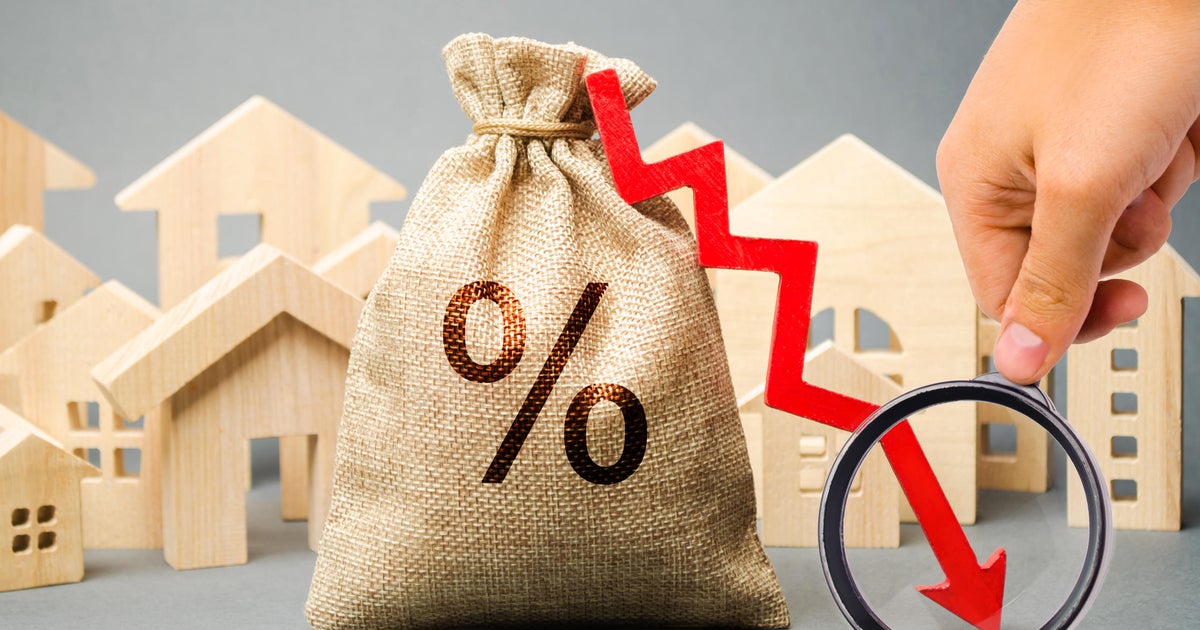Corporate landlords' profits have surged despite eviction ban fears
Property owners that opposed a federal ban on evictions in the early days of the COVID-19 pandemic claimed the restrictions would leave them on the hook for billions of dollars in losses. For many corporate landlords, however, 2021 tuned out to be a year of record profits, according to a watchdog group.
The largest publicly traded property groups in the U.S. saw their combined earnings surge more than 50% last year to nearly $5 billion, government watchdog group Accountable.US found in a new analysis. During that time, their top executives saw raises of more than 20%, the group calculated.
Take Mid-America Apartment Communities, the largest multifamily housing owner in the U.S., with 100,000 units under its purview. Mid-America's profits more than doubled in 2021 to $550 million. And Starwood Property Trust, a major real-estate investment company, boasted of a "record" year in 2021, during which time its net income rose by one-third, to $492 million.
Speaking to investors on a call in February, Starwood's CEO noted that "tenants seem capable and willing to pay these rent increases" and called inflation "an extraordinary gift that keeps on giving" for the company's affordable housing properties in Florida. (Starwood's parent, Starwood Capital Group, says it controls 220,000 housing units and 380,000 hotel rooms, among other assets.)
"When you see the nation's largest apartment companies bank nearly $5 billion and their top executives' pay soar by over 22% from last year, it's obvious the punishing rental prices on our most vulnerable populations are driven by corporate greed," Kyle Herrig, president of Accountable.US, said in a statement. "Big apartment companies have joined the long list of industries using the pandemic as cover to charge working families far beyond any new cost of doing business."
A Starwood representative did not respond to a request for comment.
AvalonBay Communities, the No. 4 property owner in America, according to the National Multifamily Housing Council, saw its bottom line shoot up 21% last year. Equity Residential, the No. 5 property owner, saw profits jump 45%, to $1.3 billion. Equity's chief operating officer touted the company's "pricing power" in a February earnings call. Camden Property Trust, the No. 12 property owner, saw income more than double, to $183 million, as did UDR, the No. 19 landlord, whose earning climbed to $160 million, according to the analysis.
A spokesperson for Equity Residential said the company's rents reflected a rise from a "steep drop" during the pandemic.
"Our portfolio attracts an affluent renter that is not rent stressed. Our residents pay us, on average, approximately 19% of their income in rent," spokesperson Marty McKenna said in an email.
Price-gouging or market demand?
Tenant advocates have accused investor-owned landlords of predatory pricing in the way they saturate certain housing markets, systematically increase rents tenants' rent and tack on fees to generate profits for their investors.
Property owners defend their rent increases by highlighting their role providing places to live at a time of soaring housing demand. Although many large landlords have also underlined their willingness to accommodate tenants who fell behind during the pandemic, they have also opposed laws that would curtail their ability to raise rents and evict tenants.
During the pandemic, trade groups opposed extending the Centers for Disease Control and Prevention's temporary freeze on some evictions, which the agency instituted as as a public health measure and which studies later found saved lives and reduced the spread of COVID-19.
"The moratorium unfairly shifts economic hardships to the backs of housing providers who have jeopardized their own financial futures to provide essential housing to renters across the country," representatives of the National Apartment Association, National Multifamily Housing Council, National Association of Realtors and a dozen other industry groups wrote last year.
The National Apartment Association, along with several property managers, sued the U.S. government for $26 billion in back rent it claims its members lost during the eviction pause. The lawsuit was dismissed. The current plaintiffs, which do not include the NAA, have indicated they plan to appeal.
And it was a lawsuit from landlords in Alabama and Georgia that led the Supreme Court to lift the moratorium last August, with the court deciding, in an unsigned opinion, that the administration had overstepped its authority.



